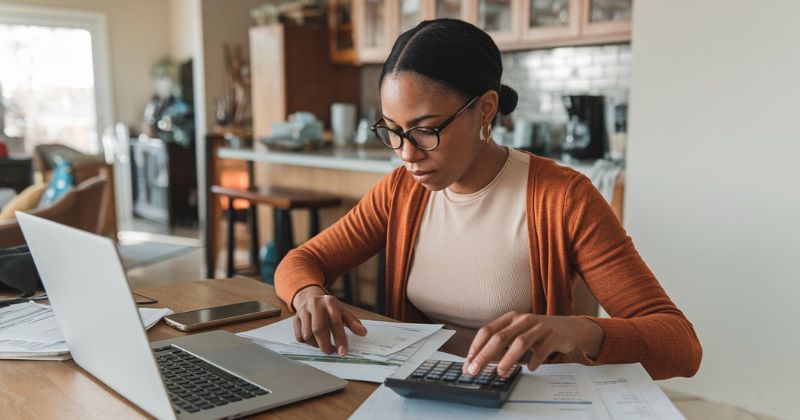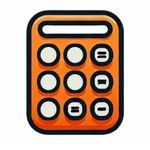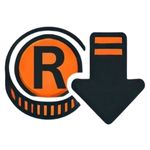
Even with a 100% home loan approval, setting money aside for a deposit remains beneficial. While some refer to a full home loan as a rare financial opportunity, it is not guaranteed for every applicant, and many buyers do not receive funding for the entire purchase price of the property they wish to buy.
Key Takeaways
- Home Loan Deposits Strengthen Applications: Contributing a deposit reduces the amount borrowed, lowers lender risk, and improves your chances of approval with more favourable loan terms.
- No-Deposit Bonds Carry Higher Risk: While 100% home loans are available, they often come with higher interest rates, stricter repayment terms, and greater financial pressure over time.
- Multiple Deposit Funding Options Available: South Africans commonly use personal savings, family gifts, asset sales, pension access, or employer-assisted housing schemes to fund their home loan deposits.
What Is a Home Loan Deposit?
A home loan deposit refers to the initial amount of money you contribute towards the purchase price of a property. This upfront payment represents your personal stake in the property, giving you ownership of a portion of the home from the outset.
By putting down a larger deposit, you may reduce the total amount that needs to be borrowed, which can result in lower interest charges over the course of the loan. This may also allow you to repay the loan over a shorter period, depending on the terms agreed with the lender.
A substantial deposit also reduces the lender’s risk, as you already own a greater share of the property. For this reason, most lenders require a minimum deposit before approving a home loan application.
Worried about coming up with a deposit? Learn What is a FLISP Subsidy? and how it can help cover part of your deposit, making homeownership more accessible even with limited savings.
About Arcadia Finance
Find the right loan easily with Arcadia Finance, with no application fees and no hassle. Compare offers from 19 trusted lenders, all fully compliant with South Africa’s National Credit Regulator. Fast, secure, and tailored to your financial goals.
Why a Deposit May Be Necessary?
A home loan deposit plays a vital role in the process of buying property in South Africa. Firstly, it serves as a sign of serious financial intent, showing the seller that the buyer is not only committed to the purchase but also financially prepared. This can be especially useful in a competitive property market, where sellers are more inclined to accept offers backed by a deposit rather than those relying entirely on full bond financing.
In addition, having a deposit can affect the outcome of your bond application. Financial institutions tend to see buyers who can provide a deposit as presenting less risk, which can increase the likelihood of loan approval. It may also result in the lender offering more favourable conditions, such as a lower interest rate, which could reduce the overall cost of the loan over time.
Lastly, contributing a deposit means borrowing less from the bank, which helps to decrease your monthly instalments. This can make your home loan more manageable over the repayment period and improve your overall financial stability.
If you’re still deciding whether to put down a deposit at all, understanding the broader pros and cons of personal loans can help you weigh short-term relief against long-term interest burdens. Some buyers even choose personal loans to help fund their deposit, but this move isn’t always wise.

What You Need to Know About Home Loan Deposits
How Much of a Deposit Is Required?
In most cases, buyers are expected to pay a deposit of approximately 10% of the property’s purchase price. This percentage can vary depending on the agreement between the parties involved. It may be possible to negotiate a lower deposit directly with the seller, especially with the assistance of a reliable estate agent.
Can I Choose Not to Pay a Deposit?
Banks in South Africa have become more flexible in their lending criteria, particularly to attract first-time homebuyers. Many institutions now offer 100% home loans, meaning no upfront deposit is required from the buyer.
However, if the Offer to Purchase specifically states that a deposit must be paid, then not doing so would be considered a breach of contract. In such a case, the seller is legally entitled to cancel the agreement.
Getting pre-qualified or pre-approved is an essential step before house hunting, and it directly ties into how much deposit you’ll need. Lenders often assess your deposit strength during pre-approval, which can influence your maximum loan amount and even interest rates.
Advantages of Paying a Deposit on a Home Loan
- Improves Chances of Loan Approval: Lenders are more likely to approve a home loan application when the buyer contributes a deposit, as it reduces the lender’s financial exposure.
- Shows Financial Responsibility: Providing a deposit demonstrates that you are capable of managing money, saving, and planning for large expenses.
- May Qualify You for Lower Interest Rates: Buyers with deposits are often seen as lower-risk borrowers, which can result in better interest rate offers, especially if applying through your primary bank.
- Reduces Total Interest Paid: A lower loan amount due to a deposit means you could pay less interest over the term of the bond, saving a substantial amount in the long run.
- Decreases Monthly Repayments: Borrowing less from the bank reduces your monthly instalments, which can improve affordability and ease financial pressure.
- Broadens Property Options: With improved affordability, you may qualify for a wider range of properties, even in more competitive markets.
- Improves Overall Financial Flexibility: Less borrowing means you retain more of your income for other living expenses, savings, or emergencies.
- Gives You a Competitive Edge as a Buyer: Sellers are often more willing to accept offers from buyers who can pay a deposit, especially when competing against offers with 100% bond reliance.
While saving for a deposit is your first big step toward homeownership, deciding on a loan type is just as crucial. Explore the Fixed vs. Variable Interest Rate for Your Home Loan guide to weigh your options and budget smarter for the future.
Risks of Buying Without a Deposit
Securing a 100% bond may help buyers enter the property market without upfront savings, but it comes with several notable disadvantages:
- Higher Interest Rates: Lenders generally charge higher interest on full bonds to offset the increased lending risk. This raises the overall cost of the loan over time.
- Stricter Repayment Terms: Without a deposit, lenders may impose more rigid repayment conditions, such as shorter loan terms and reduced flexibility in adjusting instalments.
- Increased Risk of Negative Equity: Paying no deposit means you start with no equity in the property. If property values fall, you could owe more than the home is worth, making it harder to sell or refinance.
- Heavier Monthly Instalments: Borrowing the full purchase price results in higher monthly payments, which may place greater strain on your budget, especially if interest rates rise.
- Reduced Financial Cushion: With no deposit contribution, you have less room to manage unexpected costs, such as maintenance, insurance, rates, or emergency repairs, which can affect long-term affordability.
- Limited Loan Options: Some lenders may not offer 100% bonds to all buyers, especially those with weaker credit profiles, which could limit your access to competitive home loan products.
While a no-deposit bond may seem like an easy way into homeownership, the financial risks can outweigh the benefits if not planned for carefully.

How To Save For A Deposit
Putting money aside for a home deposit can appear challenging, especially with the ongoing economic pressures facing many South Africans. However, with careful financial management and a clear plan, reaching your deposit target is entirely within reach. Below are practical steps to help you start saving effectively:

Set a Clear Savings Target
Begin by working out the approximate deposit required for the type of property you wish to purchase. This figure will vary depending on the property’s value and the area in which you intend to buy. Establishing a specific savings amount gives you a realistic and measurable objective to work towards.

Develop a Structured Budget
After determining your savings goal, design a monthly budget that prioritises your deposit contribution. Monitor your spending habits closely and identify non-essential expenses that can be reduced or removed entirely. This will create space in your finances to save more consistently.

Use a Separate Savings Account
Avoid mixing your deposit fund with your everyday money. Instead, open a dedicated savings account solely for your deposit. Choose an account that provides a competitive interest rate, allowing your savings to grow over time with minimal effort.

Set Up Automatic Transfers
Establish a scheduled monthly transfer from your main account into your savings account. Automating this process ensures regular contributions and removes the need for manual action each month. It also minimises the likelihood of skipping a payment in favour of spontaneous spending.

Reduce Existing Debt
Focus on lowering your current debt levels. Paying off credit cards, loans, or store accounts will increase your disposable income and may also boost your credit rating. A stronger credit profile improves your chances of being approved for a home loan with better repayment terms.
A well-prepared deposit can significantly strengthen your application for a home loan. Presenting yourself as a financially responsible borrower may lead to more favourable interest rates and better loan conditions, ultimately bringing your goal of homeownership within closer reach.

Deposit vs Other Upfront Costs
When purchasing a property, the deposit is just one part of the upfront costs to consider. Many buyers focus solely on saving for the deposit, but several additional expenses can impact your overall budget.
Below is a breakdown of typical upfront costs involved in buying a home in South Africa:
| Cost | Description |
|---|---|
| Deposit | A percentage of the purchase price, paid upfront to secure the property. |
| Transfer Fees | Legal fees paid to the conveyancer to register the property in your name. |
| Bond Registration Fees | Costs associated with registering your home loan with the Deeds Office. |
| Transfer Duty | A government tax payable on properties valued over a certain threshold. |
| Attorney Fees | Additional legal fees for the conveyancing process, separate from transfer fees. |
| Initiation Fee | A once-off charge by the bank for setting up the home loan. |
| Moving Costs | Expenses for relocating to your new home, including removal companies. |
| Immediate Repairs or Renovations | Costs for any urgent work needed before or soon after moving in. |
Planning Beyond Just the Deposit
It is essential to budget for all of these costs early in the home-buying process. By preparing for more than just the deposit, you can avoid unexpected financial strain and ensure a smoother transition into your new home.
Always request a full quotation of all expected fees from your estate agent or conveyancer before making an offer. This way, you can manage your savings goals more accurately and move forward with confidence.
Conclusion
Although a 100% home loan might seem appealing, saving for a deposit remains a sound financial strategy for South African buyers. A deposit can improve your chances of loan approval, reduce interest costs, and ease monthly repayments. It also signals financial readiness to both lenders and sellers, helping you secure better terms and stand out in a competitive property market. Whether through personal savings, asset sales, or assistance from family or your employer, planning and contributing a deposit can place you in a stronger position to purchase a home with long-term affordability in mind.
Frequently Asked Questions
Not necessarily. Some lenders offer 100% home loans, especially to first-time buyers. However, even when not required, having a deposit can strengthen your application and improve your chances of getting better loan terms.
It’s common to aim for a deposit of around 10% of the property’s purchase price. This amount can vary based on the lender’s requirements and what you’re able to negotiate with the seller or estate agent.
Yes, South African legislation allows for this under specific conditions. Section 19(5) of the Pension Funds Act permits the use of retirement savings as security or for a loan to help finance a home, depending on the rules of your pension fund.
If the contract requires a deposit and it isn’t paid by the agreed deadline, the seller has the legal right to cancel the deal. This would usually be considered a breach of contract by the buyer.
Not in every case, but it often helps. A deposit reduces the lender’s risk, which makes it more likely that they’ll offer a more favourable interest rate, especially if your credit history is solid and your financial situation is stable.





